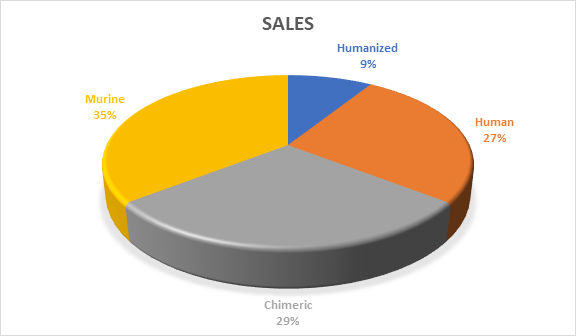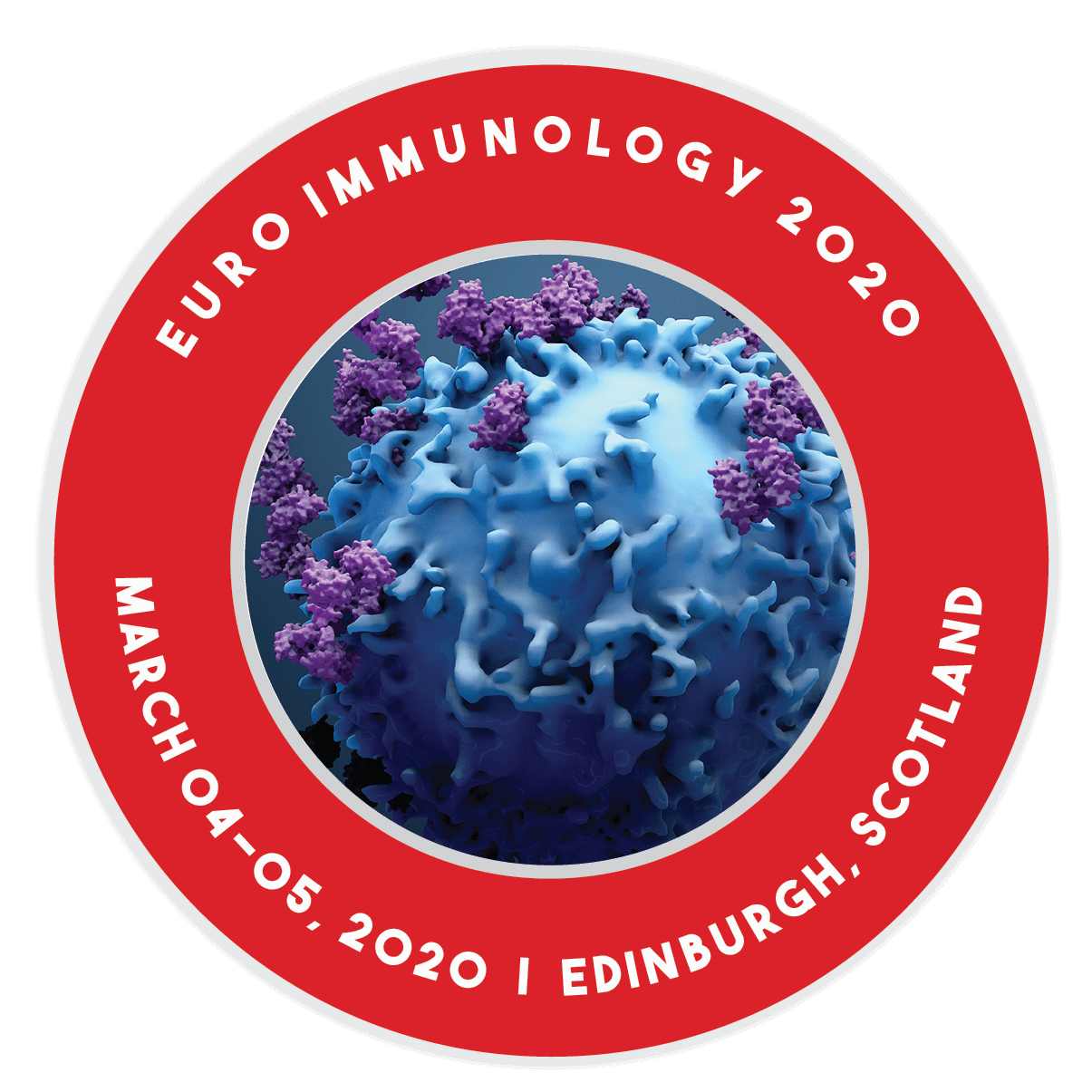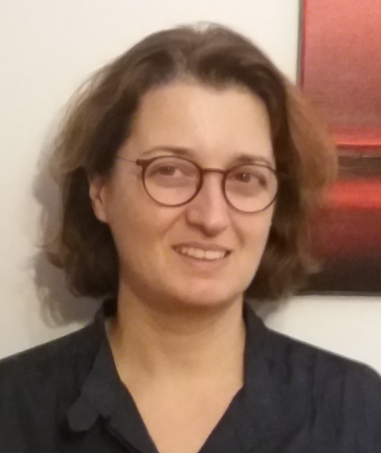Renowned Speakers
We’ve invited the top most influential speakers from around the world to give inspirational talks and lead practical workshops.
Conference Information
About Conference
Pulsus Group invites attendees from all over the world to attend "European Congress on Immunology " (Euro Immunology 2020) on March 04-05, 2020 at Edinburgh, Scotland. The conference comprises of prompt keynote presentations, Workshops, Oral talks, Poster presentations and Exhibitions. The conference is structured around the theme "Foster the natural assets of Immunology.”
Immunology conferences will gather participants from academia, business and societies interested in immunology to share the latest innovations and vital problems related to immunology and pertinent fields. Euro Immunology 2020 will arrange the platform to meet global leaders in Immunology and connected fields and listen to their research at this scientific Congress. The Immunology Conference organizes presentations from editorial board members of distinguished refereed journals, renowned investigators and decision-makers in the field of Immunology. Euro Immunology 2020 conjointly invites Young investigators to submit abstracts reportage their latest scientific findings in oral and poster sessions.
Why to attend???
Immunology is an incredibly exciting and broad area of the biomedical sciences. It is the study of the immune system in both healthy and diseased states. European Congress on Immunology ,the two days of the congress will host Scientific and technical sessions on cutting edge research and latest research innovations in the field of Immunology and biomedical sciences across the globe. It includes the study of how the body fights infections from bacteria and viruses, and the development of medical inventions to treat and prevent diseases.
Target audience:
- Immunologists
- Microbiologists
- Pathologists
- Bioinformaticians
- Physicians
- University Professors
- Research Scholars
- Laboratory technicians
- Business Entrepreneurs
- Immunology Societies and associations
- Healthcare Industries
- Pharmaceutical Industries
- Companies producing vaccines, GMO’s and allergy therapeutic
Sessions and Tracks
Session 1. Healthcare
The healthcare sector consists of businesses that provide medical services, manufacture medical equipment or drugs, provide medical insurance, or otherwise facilitate the provision of healthcare to patients. conomically, healthcare markets are marked by a few distinct factors. Government intervention in healthcare markets and activities is pervasive, in part due to some of these economic factors. Demand for healthcare services is highly price inelastic. Consumers and producers face inherent uncertainties regarding needs, outcomes, and the costs of services. Patients, providers, and other industry players possess widely asymmetric information and principal-agent problems are ubiquitous. The healthcare sector contains a diverse array of industries, with activities ranging from research to manufacturing to facilities management.
- Medicine and Health
- Careers in Health Care
- Health Care Technologies
- Healthcare services
- Diseases and health conditions
Related conferences
International Conference on Clinical Microbiology and Immunology ,March 16-17, 2020Frankfurt, Germany | Annual Congress on Vaccines and Immunization ,April 27-28, 2020Barcelona, Spain| 25th International Conference on Vaccine Design, Production & Safety ,Rome, Italy | International Conference on Clinical Immunology and Allergic diseases , August 10 - 11, 2020Melbourne , Australia | 10th World Congress on Immunology, 05-06 December 2020 ,Dubai, UAE
Related societies
British Society for Allergy and Clinical Immunology, European Academy of Allergology and Clinical Immunology, Russian Society for Immunology, European Federation of Immunological Societies, Australasian Society for Immunology, Indian Immunology Society, Korean Society for Immunology
Session 2. Immunology
Immunology is the analysis of the immune system and it is significant in the medical and biological sciences. The immune system shields us from infection through various lines of defence. If the system is not functioning as it should, then it will result in diseases, such as autoimmunity, allergy and cancer. The immune response is not only the response of the organism to antigen stimulation but also a biological process of recognizing and eliminating antigen substances. Most of the elements in the immune system are cellular in origin and not related to any specific organ, but they are embedded or circulated in various tissues located throughout the body. Immunology has applications in countless medical disciplines, especially in the fields of organ transplantation, oncology, rheumatology, virology, bacteriology, parasitology, and dermatology.
-
Healthy Immune System
-
Immune Responses
-
Impact of Immunotherapy and Immunomodulation
-
Autoimmunity
-
Technology Development and Applications
Related Conference :
International Conference on Clinical Microbiology and Immunology ,March 16-17, 2020Frankfurt, Germany | Annual Congress on Vaccines and Immunization ,April 27-28, 2020Barcelona, Spain| 25th International Conference on Vaccine Design, Production & Safety ,Rome, Italy | International Conference on Clinical Immunology and Allergic diseases , August 10 - 11, 2020Melbourne , Australia | 10th World Congress on Immunology, 05-06 December 2020 ,Dubai, UAE
Related Societies:
British Society for Immunology , The American Association of Immunologists , Clinical Immunology Society , Norwegian Society for Immunology (NSI) ,International Union of Immunological Societies :IUIS ,European Federation of Immunological Societies: EFI , Society for Mucosal Immunology , Australian and New Zealand Society for Immunology , Japanese Society for Immunology
Session 3.Inflammation & allergy
Allergic inflammation is the outcome of a complex interplay among the structural tissues and inflammatory cells, including mast cells, basophils, lymphocytes, dendritic cells, eosinophils, and sometimes, neutrophils. Allergy is a medical condition which includes allergic asthma, atopic dermatitis, and several other ocular allergic diseases. Allergic reactions can generally be divided into two components namely early phase reaction and the late phase reaction. While the offering for the development of symptoms from each phase gets varies between diseases, both the phases are usually present and provide us with a framework for understanding the allergic disease.
-
Immediate hypersensitivity
-
Cytotoxic or antibody-dependent hypersensitivity
-
Immune complex disease
-
Delayed-type hypersensitivity
-
Oral tolerance and hypersensitivity
Related Conference:
3rd International Conference on Microbiology and Infectious diseases , April 15-16, 2020 ,Dubai, UAE | International Conference on Clinical Pharmacy ,September 21-22, 2020 ,London, UK |International Conference on Contagious Diseases, November 12-13, 2020 ,London, UK | 3rd International Conference on STDs and Infectious Diseases ,Nov 12-13, 2020, London, UK |4th Global Summit on Sexually Transmitted and Infectious Diseases, November 12-13, 2020, London, UK | 5th World Congress on Virology and Infectious Diseases, July 05-06, 2021,Edinburgh, Scotland
Related Societies :
Japanese Society for Immunology, Clinical Immunology Society, Society for Immunology and Immunopathology, Turku Immunology Centre, Canadian Society of Allergy and Clinical Immunology, Cuban Society for Immunology, Norwegian Society for Immunology
Session 4. Immunohistochemistry
Immunohistochemistry is the most common application of immunostaining. It involves the process of particularly identifying antigens in cells of a tissue section by exploiting the principles of antibodies binding especially to antigens in biological tissues. Immunohistochemistry (IHC) matters much of monoclonal as well as polyclonal antibodies to determine the tissue distribution of an antigen of interest in health and diseases. IHC plays a significant role in pathology, particularly in the subspecialties of oncologic pathology, neuropathology, and hematopathology. IHC involves specific antigen-antibody interaction, it has an observable lead over historically used staining methods that identify only a less number of proteins, enzymes, and tissue structures. Therefore, IHC has become a crucial technique and is used in many medical kinds of research as well as clinical diagnostics.
-
Immunoprecipitation
-
Immunoelectrophoretic
-
Immunofixation
-
Immunonephelometric
-
Immunoturbidimetry
Related Conferences:
World Congress on Infection Prevention and Control, July 05-06, 2021, Edinburgh, Scotland | Global summit on Neuroscience and Neuroimmunology, February 19-20, 2020 ,Paris, France |4th International Conference on Chronic Diseases, February 17-18, 2020 ,Paris, France | 3rd International Conference on Worldwide Infectious Diseases ,July 05-06, 2021,London, UK |International Conference on Physicians and Surgeons, April 08-09, 2020, Dubai, UAE
Related Societies
American Academy of Allergy, Asthma and Immunology, American Association of Immunologists, National Institute of Allergy & Infectious Diseases, Canadian Society for Immunology, British Society for Immunology, German Society for Immunology, Finnish Society for Immunology
Session 5. Reproductive Immunology
Reproductive immunology refers to a field of medicine that studies relations between the immune cells and organs related to the reproductive system growth and development medicines help in the maternal immune tolerance towards the fetus or immunological interactions across the blood-testis barrier. And also clinical studies of fertility problems, recurrent miscarriages and pregnancy complications. The central creed in reproductive immunology is that there is active maternal immune recognition of pregnancy that leads to cellular, antibody or cytokine responses which protect the fetal allograft. Taking antibody responses first, there has been much evidence that so-called blocking antibodies ,which impair in vitro lymphocyte response assays can be found in normal pregnancy sera and placental eluates. However, the data often are not convincing that these systemic effects can always be ascribable to the specific antibody, rather than other serum factors, and that they occur in all successful pregnancies.
-
Maternal immune tolerance
-
Blood-testis barrier
-
Fertility clinics
-
Anti sperm antigen
-
Autoagglutination
Related Conferences:
International Conference on Clinical Immunology and Allergic diseases , August 10 - 11, 2020Melbourne , Australia | 10th World Congress on Immunology, 05-06 December 2020 ,Dubai, UAE |4th Global Summit on Sexually Transmitted and Infectious Diseases, November 12-13, 2020, London, UK | 5th World Congress on Virology and Infectious Diseases, July 05-06, 2021,Edinburgh, Scotland | World Congress on Infection Prevention and Control, July 05-06, 2021, Edinburgh, Scotland | Global summit on Neuroscience and Neuroimmunology, February 19-20, 2020 ,Paris, France |4th International Conference on Chronic Diseases, February 17-18, 2020 ,Paris, France | 3rd International Conference on Worldwide Infectious Diseases ,July 05-06, 2021,London, UK
Related Societies
British Society for Allergy and Clinical Immunology, European Academy of Allergology and Clinical Immunology, Russian Society for Immunology, European Federation of Immunological Societies, Australasian Society for Immunology, Indian Immunology Society, Korean Society for Immunology
Session 6. Pulmonary Immunology
The medicines deal with the cure and repair of pulmonary organs by secretion of secretory A immunoglobulins & contrast in the alveolar zones, There are macrophages and lymphocytes which are present in the alveolar lumen or in the pulmonary interstitial tissue. Knowledge of pulmonary immunology is essential to the understanding of certain respiratory diseases. The airways and alveolar zones may be seen separately and in contrast on the basis of the immune system of the lung. In general, there are mast cells, polynuclear eosinophil and lymphocytes within the airways.
-
Lung Diseases
-
Lymphocytes immune.
-
Lung immunology
-
Eosinophil
-
Tracheobronchial epithelium
Related Conferences :
3rd International Conference on Microbiology and Infectious diseases , April 15-16, 2020 ,Dubai, UAE | International Conference on Clinical Pharmacy ,September 21-22, 2020 ,London, UK |International Conference on Contagious Diseases, November 12-13, 2020 ,London, UK |International Conference on Clinical Microbiology and Immunology ,March 16-17, 2020Frankfurt, Germany | Annual Congress on Vaccines and Immunization April 27-28, 2020Barcelona, Spain| 25th International Conference on Vaccine Design, Production & Safety ,Rome, Italy
Related Societies
Japanese Society for Immunology, Clinical Immunology Society, Society for Immunology and Immunopathology, Turku Immunology Centre, Canadian Society of Allergy and Clinical Immunology, Cuban Society for Immunology, Norwegian Society for Immunology
Session 7. Neonatal Immunology
The baby, whether premature or of fetal age, maybe a distinctive host from associate degree medical speciality perspective. Many elements of the system operate less well in neonates compared with adults, giving rise to the conception of associate degree "immunodeficiency of immatureness." The adaptive significance of those alterations for neonatal survival remains obscure. This review highlights several distinguished quantitative and qualitative variations between baby and adult immune systems. From a clinical point of view, the foremost vital variations seem to be reduction within the accessible bone marrow reserve of WBC precursors, reduction in humor complement activity, decreased ability to supply antibodies against microorganism polyose antigens, associate degreed inflated proportion of T lymphocytes bearing an antigenically "naive" cell surface constitution and a correspondingly naive purposeful program.
-
Immatureness
-
Polyose antigens
-
Naïve immune cell arrival
-
WBC precursors
-
Bone marrow
Related Conferences
|4th International Conference on Chronic Diseases, February 17-18, 2020 ,Paris, France | 3rd International Conference on Worldwide Infectious Diseases ,July 05-06, 2021,London, UK |International Conference on Physicians and Surgeons, April 08-09, 2020, Dubai, UAE | Global summit on Neuroscience and Neuroimmunology, February 19-20, 2020 ,Paris, France |4th International Conference on Chronic Diseases, February 17-18, 2020 ,Paris, France | 3rd International Conference on Worldwide Infectious Diseases ,July 05-06, 2021,London, UK
Related Societies
American Academy of Allergy, Asthma and Immunology, American Association of Immunologists, National Institute of Allergy & Infectious Diseases, Canadian Society for Immunology, British Society for Immunology, German Society for Immunology, Finnish Society for Immunology
Session 8. Tumour immunology
Tumour immunology refers to the interaction of immune cells with cancer cells. T cells and natural killer cells are involved in tumour immunosurveillance. Tumour immunology is a collaborative branch of biology that is concerned with the role of the immune system in the advancement and evolution of cancer; the familiar application is cancer immunotherapy, which utilises the immune system as a treatment for cancer. Within the tumour microenvironment, a broad spectrum of host responses may be generated, which may range from protective cytotoxic reactions to tumour-promoting inflammatory reactions. The specific factors that dictate the outcome of the anti-cancer response remain under active study, but tumour cells typically exploit host factors to foster disease progression and create a local immunosuppressive network.
-
Antitumor Effector Cells and Regulation of Tumour Immunity
-
Tumor-Associated Antigens
-
Tumor-Associated Immunosuppression
-
Mechanisms of Tumor Rejection and Modulation of Antitumor Responses
-
Pathobiology of Immune System Malignancies
Related conferences
International Conference on Clinical Microbiology and Immunology ,March 16-17, 2020Frankfurt, Germany | Annual Congress on Vaccines and Immunization ,April 27-28, 2020Barcelona, Spain| 25th International Conference on Vaccine Design, Production & Safety ,Rome, Italy | International Conference on Clinical Immunology and Allergic diseases , August 10 - 11, 2020Melbourne , Australia | 10th World Congress on Immunology, 05-06 December 2020 ,Dubai, UAE
Related societies
British Society for Allergy and Clinical Immunology, European Academy of Allergology and Clinical Immunology, Russian Society for Immunology, European Federation of Immunological Societies, Australasian Society for Immunology, Indian Immunology Society, Korean Society for Immunology
Session 9. Immunotoxicology
Immunotoxicology is the study of harmful effects on the system that results directly or indirectly from occupational, environmental or therapeutic exposure to chemicals, biologic materials and, in certain instances, physiological factors, as a whole referred to as agents. It encloses studies of altered immunologic events associated with exposure of humans and wildlife species including immune regulation (suppression or enhancement), allergy and autoimmunity . In the former case, the systemic or local immune system acts as a passive target for the agent, and the result may be an increase in the severity of infectious disease or neoplasia. In allergy, the immune system responds to hapten–host protein conjugates or high molecular weight compounds. The most likely health consequences include respiratory tract allergies like asthma, rhinitis or allergic contact dermatitis. Autoimmunity may occur as a result of an agent-induced alteration in host tissue. The recent studies in immunotoxicology involve investigations in the inflammatory mediators, particularly cytokines and reactive oxygen species.
-
Immunosuppression
-
Xenobiotic.
-
Developmental Immunotoxicology
-
Hypersensitivity
-
Immunodisfunction
Related Conferences
3rd International Conference on Microbiology and Infectious diseases , April 15-16, 2020 ,Dubai, UAE | International Conference on Clinical Pharmacy ,September 21-22, 2020 ,London, UK |International Conference on Contagious Diseases, November 12-13, 2020 ,London, UK | 3rd International Conference on STDs and Infectious Diseases ,Nov 12-13, 2020, London, UK |4th Global Summit on Sexually Transmitted and Infectious Diseases, November 12-13, 2020, London, UK | 5th World Congress on Virology and Infectious Diseases, July 05-06, 2021,Edinburgh, Scotland
Related Societies
Japanese Society for Immunology, Clinical Immunology Society, Society for Immunology and Immunopathology, Turku Immunology Centre, Canadian Society of Allergy and Clinical Immunology, Cuban Society for Immunology, Norwegian Society for Immunology
Session 10. Wild Immunology
The body defence mechanism regularly exposed to a wide range of pathogens, organisms must elicit and regulate effective immune responses to protect their health while avoiding immunopathology. But, most of our knowledge about the functions of the immune system comes from laboratory studies performed on mice in extremely controlled environments with restricted exposure to infection. The goal of 'wild immunology' is to connect immune phenotype with the host fitness in natural environments. To achieve this,it requires relevant measures of immune responsiveness that are both applicable to the host-parasite interaction understudy and robustly associated with measures of host and parasite fitness.
-
Phenotype
-
Host-parasite
-
Screening
-
Parasite ecology
-
Quantitative parasitology
Related Conferences
World Congress on Infection Prevention and Control, July 05-06, 2021, Edinburgh, Scotland | Global summit on Neuroscience and Neuroimmunology, February 19-20, 2020 ,Paris, France |4th International Conference on Chronic Diseases, February 17-18, 2020 ,Paris, France | 3rd International Conference on Worldwide Infectious Diseases ,July 05-06, 2021,London, UK |International Conference on Physicians and Surgeons, April 08-09, 2020, Dubai, UAE
Related Societies
Japanese Society for Immunology, Clinical Immunology Society, Society for Immunology and Immunopathology, Turku Immunology Centre, Canadian Society of Allergy and Clinical Immunology, Cuban Society for Immunology, Norwegian Society for Immunology
Session 11. Cardiovascular Immunology
Cardiovascular immunology is a medicine related to cardiac diseases , exploring the relation between the cardiovascular and the immune system . This relation is apparent through vital immunological limits and elements of cardiovascular cell types, with cardiomyocytes, fibroblasts, endothelial cells, pericytes and heart inhabitant macrophages, the effect of variant immune function on the improvement of cardiovascular illness, for example, atherosclerosis, direct and indirect immune-mediated heart disease and vasculitis, and the critical role of the immune system in cardiac repair and regeneration.
-
Cardiovascular disease
-
Heart Block
-
Myocardial Infarction
-
Endothelial
-
Atherosclerosis
Related Conferences
International Conference on Clinical Immunology and Allergic diseases , August 10 - 11, 2020Melbourne , Australia | 10th World Congress on Immunology, 05-06 December 2020 ,Dubai, UAE |4th Global Summit on Sexually Transmitted and Infectious Diseases, November 12-13, 2020, London, UK | 5th World Congress on Virology and Infectious Diseases, July 05-06, 2021,Edinburgh, Scotland | World Congress on Infection Prevention and Control, July 05-06, 2021, Edinburgh, Scotland | Global summit on Neuroscience and Neuroimmunology, February 19-20, 2020 ,Paris, France |4th International Conference on Chronic Diseases, February 17-18, 2020 ,Paris, France | 3rd International Conference on Worldwide Infectious Diseases ,July 05-06, 2021,London, UK
Related Societies
British Society for Allergy and Clinical Immunology, European Academy of Allergology and Clinical Immunology, Russian Society for Immunology, European Federation of Immunological Societies, Australasian Society for Immunology, Indian Immunology Society, Korean Society for Immunology
Session 12. Osteo Immunology
Osteoimmunology is a relation between skeletal system and immune system where the immune cells responsible for growth of bones and skeletal system comprises of mechanisms between the two systems in vertebrates, including ligands, receptors, signalling molecules and transcription factors. Osteoimmunology has been explored clinically for the treatment of bone metastases, rheumatoid arthritis (RA), osteoporosis, osteopetrosis, and periodontitis. Researches in osteoimmunology disclose the interrelation between molecular communication among blood cells and structural pathologies within the body.
-
System similarities
-
Crosstalk
-
Clinical osteoimmunology
-
Bone metabolism
-
Immune mediator
Related Conferences
3rd International Conference on Microbiology and Infectious diseases , April 15-16, 2020 ,Dubai, UAE | International Conference on Clinical Pharmacy ,September 21-22, 2020 ,London, UK |International Conference on Contagious Diseases, November 12-13, 2020 ,London, UK |International Conference on Clinical Microbiology and Immunology ,March 16-17, 2020Frankfurt, Germany | Annual Congress on Vaccines and Immunization April 27-28, 2020Barcelona, Spain| 25th International Conference on Vaccine Design, Production & Safety ,Rome, Italy
Related Societies
British Society for Allergy and Clinical Immunology, European Academy of Allergology and Clinical Immunology, Russian Society for Immunology, European Federation of Immunological Societies, Australasian Society for Immunology, Indian Immunology Society, Korean Society for Immunology
Session 13. Immunohematology
Immunohematology is a branch of haematology which studies antigen-antibody reactions and similar phenomena and Characterization of blood disorders based on their pathogenicity and membrane-bound organelles of blood cells. Immunohematology includes blood typing, cross-matching and antibody identification. Immunohematology is the study of RBC antigens and antibodies related to blood transfusions. There are about 230 types of antigens present on the surface of RBCs that, based on their chemical structure and can be grouped into two major categories such as carbohydrates and polypeptides. The erythrocytes antigen formation is encrypted by specific genes inherited from parents and categorized in blood group systems.
-
RBC antigen
-
Rh factor
-
RBC agglutination
-
Hemolysis
-
Histocompatibility
Related Conferences
4th International Conference on Chronic Diseases, February 17-18, 2020 ,Paris, France | 3rd International Conference on Worldwide Infectious Diseases ,July 05-06, 2021,London, UK |International Conference on Physicians and Surgeons, April 08-09, 2020, Dubai, UAE | Global summit on Neuroscience and Neuroimmunology, February 19-20, 2020 ,Paris, France |4th International Conference on Chronic Diseases, February 17-18, 2020 ,Paris, France | 3rd International Conference on Worldwide Infectious Diseases ,July 05-06, 2021,London, UK
Related Societies
American Academy of Allergy, Asthma and Immunology, American Association of Immunologists, National Institute of Allergy & Infectious Diseases, Canadian Society for Immunology, British Society for Immunology, German Society for Immunology, Finnish Society for Immunology
Session 14. Computational immunology
Computational immunology is a branch of bioinformatics which deals with sequence alignment and protein structure prediction tools. The Immune cell interactions and responses are converted to computational data where the analysis and recovery are done using mathematical and computational approaches and then convert these results into immunologically meaningful interpretations. This provides a better understanding of immune responses and their role during normal, diseased and reconstitution states. Computational immunology is a division of immunomics, which is focused on analyzing large scale experimental data.
-
ALPSbase
-
AntigenDB
-
AntiJe
-
BCIpep
-
IMGT_GENE-DB
Related Conferences
International Conference on Clinical Microbiology and Immunology ,March 16-17, 2020Frankfurt, Germany | Annual Congress on Vaccines and Immunization ,April 27-28, 2020Barcelona, Spain| 25th International Conference on Vaccine Design, Production & Safety ,Rome, Italy | International Conference on Clinical Immunology and Allergic diseases , August 10 - 11, 2020Melbourne , Australia | 10th World Congress on Immunology, 05-06 December 2020 ,Dubai, UAE
Related Societies
British Society for Allergy and Clinical Immunology, European Academy of Allergology and Clinical Immunology, Russian Society for Immunology, European Federation of Immunological Societies, Australasian Society for Immunology, Indian Immunology Society, Korean Society for Immunology
Session 15.Veterinary Allergology
A hypersensitive response to proteins found in a creature's skin cells, salivation or pee is veterinary sensitivity or Allergology. The pet hair, hide or proteins present in a pet's dander, skin chips, spit and pee can instigate unfavorably susceptible response or cause asthma manifestations in certain individuals. There are a few contextual analyses on pet sensitivities. Pet hypersensitivity is generally observed towards felines and canines as they are the most well-known pets around the world. Feline sensitivity immunotherapy is broadly utilized by feline darlings. A few cases have been seen where hypersensitivity responses are seen to venom, chomp and sting of creepy crawlies and furthermore to proteins found in creature items where the nourishment sensitivity comes into picture as well.
-
Zoonotic bacteria
-
Allergic Reactions to venom
-
Parasite vaccines
-
Veterinary viral vaccines
Related Conferences
International Conference on Molecular Networks of Systems Immunology and Cellular Immunology, Rome, Italy, November 11 - 12, 2019 ; American College of Allergy, Asthma & Immunology, November 07-11, 2019 Houston, TX, United States ; 5th International Congress on Controversies in Rheumatology & Autoimmunity, March 14-16, 2019 Firenze, Italy; Interdisciplinary Autoimmune Summit, April 05-07, 2019 Chicago, IL, United States; American Society for Reproductive Immunology, June 12-15, 2019 Grand Rapids, MI, United States; 2nd Human& Translational Immunology Conference 2019, 29 May- 03 June 2019, kos island, Greece; International Summit on Microbiology and Immunology, April 9-10,2019, Dubai,UAE.
Related societies
British Society for Allergy and Clinical Immunology, European Academy of Allergology and Clinical Immunology, Russian Society for Immunology, European Federation of Immunological Societies, Australasian Society for Immunology, Indian Immunology Society, Korean Society for Immunology
Session 16. Innate immunity
Innate immunity refers to the nonspecific defence mechanisms that come into action immediately or within a few hours of an antigen's appearance in the body. These mechanisms consist of physical barriers such as skin, chemicals in the blood, and immune system cells that fight against foreign cells in the body. The innate immune reaction is activated by the chemical properties of the antigen. Innate immunity happens because of the genetic factors; it is not influenced by infections or vaccinations but it will scale back the work for the adaptive immune responses.
-
Antigen and antibody interaction
-
Primary immune responses
-
Secondary immune responses
-
B lymphocytes
-
T lymphocytes
Related Conferences
3rd International Conference on Microbiology and Infectious diseases , April 15-16, 2020 ,Dubai, UAE | International Conference on Clinical Pharmacy ,September 21-22, 2020 ,London, UK |International Conference on Contagious Diseases, November 12-13, 2020 ,London, UK | 3rd International Conference on STDs and Infectious Diseases ,Nov 12-13, 2020, London, UK |4th Global Summit on Sexually Transmitted and Infectious Diseases, November 12-13, 2020, London, UK | 5th World Congress on Virology and Infectious Diseases, July 05-06, 2021,Edinburgh, Scotland
Related Societies
American Academy of Allergy, Asthma and Immunology, American Association of Immunologists, National Institute of Allergy & Infectious Diseases, Canadian Society for Immunology, British Society for Immunology, German Society for Immunology, Finnish Society for Immunology
Session 17. Adaptive immunity
Adaptive immunity refers to antigen-specific immune response. The adaptive immune response is more extravagant than the innate system. At first, the antigen must be processed and recognized. Once an antigen has been recognized, the adaptive immune system will create an army of immune cells particularly designed to attack the antigen. Adaptive immunity also consists of "memory" that makes future responses against a specific antigen more efficient. The innate immune response is initiated by antigen's chemical properties. The adaptive immunity is started by exposure to pathogens and it will use an immunological memory to know about the threat and intensify the immune response accordingly. The adaptive immune result is much slower to respond to threats and infections than the innate immune response.
-
white blood cells
-
leukocytes
-
immunomodulatory
-
specific immunity
-
Activation immunotherapy
Related Conferences
World Congress on Infection Prevention and Control, July 05-06, 2021, Edinburgh, Scotland | Global summit on Neuroscience and Neuroimmunology, February 19-20, 2020 ,Paris, France |4th International Conference on Chronic Diseases, February 17-18, 2020 ,Paris, France | 3rd International Conference on Worldwide Infectious Diseases ,July 05-06, 2021,London, UK |International Conference on Physicians and Surgeons, April 08-09, 2020, Dubai, UAE
Related Societies
British Society for Allergy and Clinical Immunology, European Academy of Allergology and Clinical Immunology, Russian Society for Immunology, European Federation of Immunological Societies, Australasian Society for Immunology, Indian Immunology Society, Korean Society for Immunology
Session 18. Plant imuunology
Plant medical is the study of how plants defend their tissues from getting infected. Plants do not have associate degree adaptive system, however, they have evolved innate immune mechanisms (including the resistance proteins) to sense and reply to infections. Relative to a prone plant, malady resistance will reduce the microorganism growth on or within the plant , whereas the term malady tolerance describes plants that exhibit very little infection despite substantial microorganism levels. Disease outcome is based on the interaction of the microorganism, the plant and therefore the environmental conditions which is known as the disease triangle.
-
Cellular barriers
-
Natural killer cells
-
Immunoprophylaxis
-
Complement system
-
Immune complex disease
Related Conferences
International Conference on Clinical Immunology and Allergic diseases , August 10 - 11, 2020Melbourne , Australia | 10th World Congress on Immunology, 05-06 December 2020 ,Dubai, UAE |
4th Global Summit on Sexually Transmitted and Infectious Diseases, November 12-13, 2020, London, UK | 5th World Congress on Virology and Infectious Diseases, July 05-06, 2021,Edinburgh, Scotland | World Congress on Infection Prevention and Control, July 05-06, 2021, Edinburgh, Scotland | Global summit on Neuroscience and Neuroimmunology, February 19-20, 2020 ,Paris, France |4th International Conference on Chronic Diseases, February 17-18, 2020 ,Paris, France | 3rd International Conference on Worldwide Infectious Diseases ,July 05-06, 2021,London, UK
Session 19. Vaccinology
The process of production and development of vaccines that incorporates biological agents that area unit almost like disease-causing microorganisms in weakened forms it means the pathogenicity is disintegrated from the microorganism vaccines a biological preparation that gives active resistance to a selected illness. A vaccine distinctively consists of an agent that lool like a disease-causing microorganism and is often made from weakened or killed forms of the microbes, its toxins, or one of its surface proteins. The agent stimulates the body's system to acknowledge the agent as a threat, conclude it, and destroy the microorganisms related to that agent that it may encounter in the forthcoming. Vaccines can be prophylactic or relaxing. The management of vaccines is called vaccination. Vaccination is that the best technique of preventing infectious diseases widespread immunity because of vaccination is essentially in charge of the worldwide obliteration of variola and the restriction of diseases.
-
Innate immune system
-
Adaptive immune system
-
White blood cells
-
leukocytes
-
Immunomodulatory
Related Conferences
3rd International Conference on Microbiology and Infectious diseases , April 15-16, 2020 ,Dubai, UAE | International Conference on Clinical Pharmacy ,September 21-22, 2020 ,London, UK |International Conference on Contagious Diseases, November 12-13, 2020 ,London, UK |International Conference on Clinical Microbiology and Immunology ,March 16-17, 2020Frankfurt, Germany | Annual Congress on Vaccines and Immunization April 27-28, 2020Barcelona, Spain| 25th International Conference on Vaccine Design, Production & Safety ,Rome, Italy
Related Societies
Japanese Society for Immunology, Clinical Immunology Society, Society for Immunology and Immunopathology, Turku Immunology Centre, Canadian Society of Allergy and Clinical Immunology, Cuban Society for Immunology, Norwegian Society for Immunology
Session 20. Immunomics
Immunomics is a branch of bioinformatics which involves tools to visualize biological networks and infer interrelationships between genes and/or proteins with help of genomic and proteomic technologies to understand the immune system functions and their regulations. Traditionally, scientists examine the immune system had to search for the antigens on an individual basis and recognize the protein sequence of epitopes that would stimulate an immune response. This procedure needs the antigens to be isolated from whole cells, digested into smaller fragments and tested against T- and B-cells to know the responses of T- and B- cells. This approaches could only visualize this system as a static condition and required a large amount of time and manpower. Immunomics has made it easier by its ability to look at the immune system as a whole and characterize it as a dynamic model. It was disclosed that some of the immune system's most distinguishing features are the continuous motility, turnover, and plasticity of its constituent cells.
-
Proteomic
-
Genomic
-
Immunomic microarrays
-
Lymphochip
-
T- and- B-cell-epitope mapping tools
Related Conferences
4th International Conference on Chronic Diseases, February 17-18, 2020 ,Paris, France | 3rd International Conference on Worldwide Infectious Diseases ,July 05-06, 2021,London, UK |International Conference on Physicians and Surgeons, April 08-09, 2020, Dubai, UAE | Global summit on Neuroscience and Neuroimmunology, February 19-20, 2020 ,Paris, France |4th International Conference on Chronic Diseases, February 17-18, 2020 ,Paris, France | 3rd International Conference on Worldwide Infectious Diseases ,July 05-06, 2021,London, UK
Related Societies
American Academy of Allergy, Asthma and Immunology, American Association of Immunologists, National Institute of Allergy & Infectious Diseases, Canadian Society for Immunology, British Society for Immunology, German Society for Immunology, Finnish Society for Immunology
Session 21. Mucosal immunology
Mucosal immunology is the study of immune system responses that happens in the mucosal membranes of the intestines, the urogenital tract and the respiratory system, that is the surfaces that are in relation with the external environment. In normal, the mucosal immune system will provide protection against pathogens. The mucosal membranes are the significant contact point between a host and its environment, a large amount of secondary lymphoid tissue is found here. The mucosa-associated lymphoid tissue, or MALT, provides the organism with the first line of defence. Along with the spleen and lymph nodes, the tonsils and MALT are also known as the secondary lymphoid tissue. The mucosal immune system provides three main functions: serving as the body's first line defence from antigens and infection, preventing systemic immune responses to commensal bacteria and food antigens, and regulating appropriate immune responses to pathogens encountered on a daily basis.
-
Protective Mucosal Immune Responses
-
Influences on Mucosal Immunity
-
Mucosal Tolerance and Disease
-
Role and Regulation of IgA
-
Mucosal Vaccine Development
Related Conferences
International Conference on Clinical Microbiology and Immunology ,March 16-17, 2020Frankfurt, Germany | Annual Congress on Vaccines and Immunization ,April 27-28, 2020Barcelona, Spain| 25th International Conference on Vaccine Design, Production & Safety ,Rome, Italy | International Conference on Clinical Immunology and Allergic diseases , August 10 - 11, 2020Melbourne , Australia | 10th World Congress on Immunology, 05-06 December 2020 ,Dubai, UAE
Related Societies
Society for Mucosalhttps://european-immunology.pulsusconference.com/conference-brochure Immunology(SMI), Japanese Society of Mucosal Immunology, International congress of mucosal immunology Brisbane, Japanese Society for Immunology, Clinical Immunology Society, Society for Immunology and Immunopathology, Turku Immunology Centre, Canadian Society of Allergy and Clinical Immunology, Cuban Society for Immunology, Norwegian Society for Immunology
Market analysis
The Europe Molecular Immunology market was worth $13.02 Billion in 2016 and estimated to reach $23.41 Billion by the end of 2023 with a growing potential of 12.45 %. Asia Pacific Molecular Immunology market is expecting a sound growth of CAGR of 15.5% during the forecasted period 2017-2023. The LAMEA (Latin America, Middle East & Africa) Molecular Immunology Market is expecting a sound growth of 17.9% CAGR during the forecast period (2017 – 2023).counted for $43.59 billion in 2016 and is percepted to reach $141.70 billion by 2026. The market is expected to grow at a compound annual growth rate (CAGR) of 11.23% between the years 2017 and 2026.

The graph has exponentially increased in the market of monoclonal antibodies where humanizes antibodies expected growth from $20 billion to $39 billion in the year duration of 2013 to 2024, Similarly, with the chimeric antibodies expected growth from $65 billion to $80 billion in the duration of 2013 to 2024 And in the murine antibody sector from$80 billion to the expected growth to $120 billion in the duration of 2013 to 2024 the growth of immunology market in different continents where the immunology contributes towards the economic growth of the different continents in North America the growth is approximately $40 billions were as in Europe its $27 billions in the Asia Pacific region the revenue is around $21 billions Reaming rest of the world is $13billion.
FDA Approved Drugs for Immunology
Asceniv for the treatment of Primary Humoral Immunodeficiency Disease.
Dovato for the treatment of HIV-1 infection in adults.
Otezla for the treatment of oral ulcers.
Ruzurgi for the treatment of Lambert-Eaton myasthenic syndrome in paediatrics.
Gamifant for the treatment of primary hemophagocytic lymphohistiocytosis.
Ilumya for the treatment of plaque psoriasis.
Revcovi for the treatment of adenosine deaminase severe combined immune deficiency.
Rituxan for the treatment of Pemphigus Vulgaris.
Tavalisse for the treatment of chronic immune thrombocytopenia.
Ultomiris for the treatment of paroxysmal nocturnal hemoglobinuria.
Xofluza for the treatment of acute uncomplicated influenza.
Yupelri for the treatment of chronic obstructive pulmonary disease.
Haegarda for the routine prophylaxis to prevent Hereditary Angioedema attacks.
Actemra for the treatment of CAR T cell-induced severe or life-threatening cytokine release syndrome.
Ocrevus for the treatment of multiple sclerosis.
Immunological Companies and Organizations
- Theragene Pharmaceuticals
- STROX Biopharmaceuticals
- Unum Therapeutics
- Wellstat Group
- Ziopharm Oncology
- Xencor
- TNI Biotech
- AbGenomics
- American Qualex
- ImmuneXcite
- iRepertoire
- KaloBios
- Systimmune
- ContraFect
- Crown Bioscience
- Enumeral Biomedical
- Gradalis
- Fred Hutch
- IDEAYA Biosciences
- University of Oxford
- Imperial College London
- University College London
- London School of Hygiene & Tropical Medicine
- University of Cambridge
- University of Edinburgh
- King's College London
- University of Manchester
- University of Liverpool
- Cardiff University
- University of Glasgow
- University of Southampton












